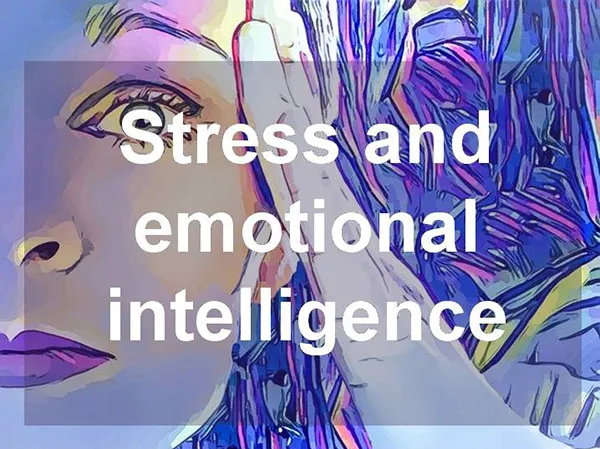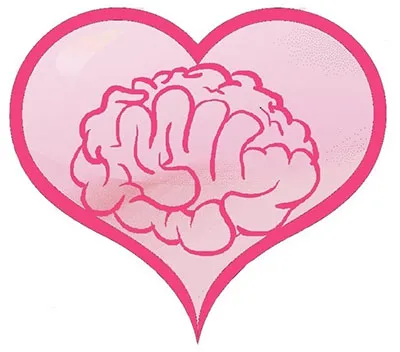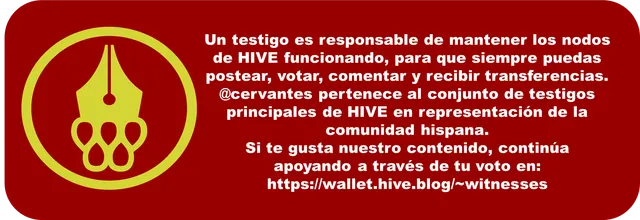
Estrés es una palabra que se ha hecho tan común en nuestros días que gran parte de nuestros sentimientos y emociones se lo achacamos a él, así que con frecuencia escuchamos frases como: estoy estresada, fulano me estresa, cálmate que estás estresada, este trabajo me estresa.
Estos estados del sentir recogen las características generales del estrés el cual de manera sencilla se puede definir como esa respuesta ante un hecho, situación, persona que exige más de nosotros en un momento determinado. La emoción que describe de manera primaria al estrés es el miedo porque es la respuesta natural de nuestro organismo para afrontar las situaciones apremiantes y que activan nuestro cuadro hormonal para huir, protegernos o afrontar el hecho.
Mucho se ha hablado y escrito de las causas que producen el estrés encontrando en ello una manera de clasificarlos, así tenemos los llamados estresores externos que provienen del entorno como: trabajo, familia, estudio y los internos que tienen su base en la percepción que cada uno tiene para vivir las situaciones, al hablar de percepción necesariamente caemos en nuestros pensamientos y las emociones que ellos nos generan.
Ahora bien, La Inteligencia Emocional nos habla del autoconocimiento y autocontrol emocional relacionemos estos dos pilares con el estrés.
Autoconocimiento y estrés

Cuando nosotros metemos todo lo que sentimos en una sola palabra, en este caso estrés, se nos dificulta más trabajarlo porque es una generalización que incluso llega a la abstracción. Retomando las expresiones que, señalé en el primer párrafo, si nos ponemos a detallar posiblemente cuando afirmo:
Estoy estresada. ¿Qué significa para mí, en ese momento, esta expresión? Quizás lo que quiero decir es que estoy agotada, cansada, triste, alterada.
Fulano me estresa: ¿Será que permito que me agobie, me pongo impaciente, irritada, molesta?
Cálmate que estás estresada: Alguien que me ve inquieta, nerviosa, que no atino a responder con medida antes una situación.
Este trabajo me estresa. ¿Es que sobrepasa mi capacidad, me siento inconforme, siento que el tiempo me apremia?
Hurgar y profundizar en lo que siento me permite ponerle el nombre concreto y definitorio a esa emoción o sentimiento que tengo y desde allí puedo plantearme alternativas para minimizar el estrés y si es posible eliminar su causa, por ejemplo:
Me doy cuenta que el estrés es causado por cansancio o porque son muchas las actividades que tengo que hacer en el tiempo estipulado, para ello aplico estrategias que me lleven a encontrar mi centro de equilibrio entre ellas, a modo de sugerencias estarían:
Lo ideal sería tomarte unos días de descanso pero si no puedes anímate a realizar las respiraciones conscientes tantas veces como puedas al día (hacer un hábito de ello sería perfecto).
Hacer pausas frecuentes cambiando a una actividad gratificante: Hacer un estiramientos corporales, (si estas en el trabajo puedes hacerlos en el baño), conversar un ratico con alguien interesante, salir del lugar y tomar aire fresco y, por qué no, contemplar el cielo con sus suaves movimientos.
Organizar tareas con el criterio urgente e importante, si todo en tu vida es urgente hay que revisar esos criterios.
En fin la idea de este escrito es que vayamos por pasos e identifiquemos de manera clara que es lo que estamos sintiendo y de allí iniciar nuestro trabajo para desestresarnos.
Autocontrol y estrés

El autocontrol emocional, comienza necesariamente por manejar nuestros pensamientos pero hoy vamos a centrarnos en la acción. En el ejemplo: Fulano me estresa, si lo que determino es que me pone de mal humor (apartado anterior) se nos abren por lo menos cuatro líneas de acción:
1.- Me pongo a pensar por qué esta persona me hace esto a mí (víctima).
2.- Me engancho en su propuesta y acepto el mal humor como intermediario de la relación.
3.- Ignoro el hecho estresante asumiendo que el problema es de esa persona, no mío.
4.- Confronto la situación desde el autocontrol tratando de fijar límites en la relación.
Cuando el estrés es producto de lo externo, en lo particular me parece que es más fácil de manejar, incluso si la persona es muy cercana y convivimos con ella nuestra decisión, si la expresamos de una manera clara y firme, lo más probable es que surta el efecto deseado.
En estos días conversando con una amiga me contaba que su esposo había agarrado la mala costumbre de sentarse a verla haciendo los oficio de la casa y de paso iba señalando lo que le faltaba y como podía hacerlo mejor. Ya estaba tan estresada que no quería hacer nada en la casa, con tal de no escucharlo.
A la pregunta: ¿Y qué hiciste? Me respondió riendo: Bueno en una de esas, cuando ya me estaba alterando, me volteé, agarré la escoba y se la puse en las manos diciéndole: - Sabes cómo es la cosa, toma la escoba y anda a barrer. Él asombrado se paró de la silla y se encaminó al cuarto murmurando algo como: - Es que no se te puede decir nada… pero desde ese día, adiós a la situación estresante, por ese motivo.
El estrés tiene múltiples causantes, en la medida en que nosotros vamos reconociendo que es lo que nos lo produce en un momento determinado, podemos ir tomando medidas concretas para minimizar este desagradable sentimiento que es abarcante trayendo consecuencias negativas al cuerpo, la mente y el espíritu reduciendo notablemente los espacios de bienestar, estemos seguros que cada acción positiva que tomemos y seamos constante en ellas caminamos hacia ese equilibrio que nos permite vivir en mayor tranquilidad.
Esta es mi participación a la invitación que me hiciera el amigo @emiliorios para la propuesta del mes de la apreciada comunidad @Emotions & Feelings sobre el Estrés acá el link para que te expreses. Hago extensiva la invitación a @irvinc y a la amiga @doriscova8.

In English

Stress is a word that has become so common in our days that we attribute a great part of our feelings and emotions to it, so we often hear phrases like: I am stressed, so-and-so is stressing me out, calm down you are stressed out, this job is stressing me out.
These states of feeling gather the general characteristics of stress which in a simple way can be defined as that response to a fact, situation, person that demands more from us at a certain moment. The emotion that describes stress in a primary way is fear because it is the natural response of our organism to face pressing situations and that activates our hormonal framework to flee, protect ourselves or face the event.
Much has been said and written about the causes that produce stress finding in it a way to classify them, so we have the so-called external stressors that come from the environment such as: work, family, study and the internal ones that are based on the perception that each one has to live the situations, when talking about perception we necessarily fall into our thoughts and emotions that they generate.
Now, Emotional Intelligence talks about self-knowledge and emotional self-control, let's relate these two pillars with stress.
Self-knowledge and stress

When we put everything we feel in one word, in this case stress, it is more difficult to work on it because it is a generalization that even reaches abstraction. Going back to the expressions I mentioned in the first paragraph, if we go into detail, it is possible that when I say "I am stressed", what does it mean for me?
I am stressed, what does this expression mean to me at that moment? Perhaps what I mean is that I am exhausted, tired, sad, upset.
So-and-so stresses me out: Could it be that I allow myself to be overwhelmed, become impatient, irritated, annoyed?
Calm down, you're stressed out: Someone who sees me restless, nervous, that I don't know how to respond to a situation.
This job is stressing me out, is it beyond my capacity, do I feel dissatisfied, do I feel that time is pressing me?
Digging and going deeper into what I feel allows me to give a concrete and defining name to that emotion or feeling I have and from there I can consider alternatives to minimize stress and if possible eliminate its cause, for example:
I realize that stress is caused by tiredness or because there are many activities that I have to do in the stipulated time, for this I apply strategies that lead me to find my center of balance between them, as suggestions would be:
The ideal would be to take a few days off but if you can not encourage you to perform conscious breaths as many times as you can a day (make a habit of it would be perfect).
Take frequent breaks by switching to a rewarding activity: do a body stretch, (if you are at work you can do it in the bathroom), talk for a while with someone interesting, leave the place and get some fresh air and, why not, contemplate the sky with its soft movements.
Organize tasks with urgent and important criteria, if everything in your life is urgent you have to review those criteria.
In short, the idea of this writing is that we go by steps and identify in a clear way what we are feeling and from there start our work to de-stress.
Self-control and stress

Emotional self-control necessarily begins by managing our thoughts, but today we are going to focus on action. In the example: So-and-so stresses me out, if what I determine is that he puts me in a bad mood (previous section) at least four lines of action are open to us:
1.- I start to think why this person does this to me (victim).
2.- I get involved in their proposal and accept the bad mood as an intermediary in the relationship.
3.- I ignore the stressful event assuming that the problem is that person's problem, not mine.
4.- I face the situation from self-control trying to set limits in the relationship.
When the stress is produced by external causes, in particular it seems to me that it is easier to handle, even if the person is very close and we live with her our decision, if we express it in a clear and firm way, it is most likely to have the desired effect.
These days I was talking to a friend of mine and she was telling me that her husband had gotten into the bad habit of sitting and watching her doing the housework and pointing out what was missing and how he could do it better. She was already so stressed out that she didn't want to do anything around the house, so long as she didn't listen to him.
To the question: And what did you do? He answered me laughing: Well, one of those times, when I was getting upset, I turned around, grabbed the broom and put it in his hands and told him: - You know how it is, take the broom and go sweep. He, astonished, got up from his chair and walked away.
To the question: And what did you do? He answered me laughing: Well, in one of those, when I was getting upset, I turned around, grabbed the broom and put it in his hands and told him: - You know how it is, take the broom and go sweep. He, astonished, got up from his chair and walked to the room muttering something like: "You can't say anything to you, can you? - But from that day on, goodbye to the stressful situation, at least, for that reason.
Stress has multiple causes, to the extent that we are recognizing what produces it at a given time, we can take concrete steps to minimize this unpleasant feeling that is encompassing bringing negative consequences to the body, mind and spirit significantly reducing the spaces of well-being, we are sure that every positive action we take and we are constant in them we walk towards that balance that allows us to live in greater tranquility.
This is my participation to the invitation made to me by my friend @emiliorios for the proposal of the month of the appreciated community @Emotions & Feelings about Stress here the link for you to express yourself. I extend the invitation to @irvinc and friend @doriscova8.

Translated with www.DeepL.com/Translator (free version)
Fuente de imágenes: Portada - 1- - 2



MIS REDES SOCIALES



Cortesía de la comunidad


Te invito a apoyar este proyecto como witnes y a formar parte de esta gran comunidad uniéndote a su Discord en el siguiente enlace:
Discord de la comunidad Cervantes



